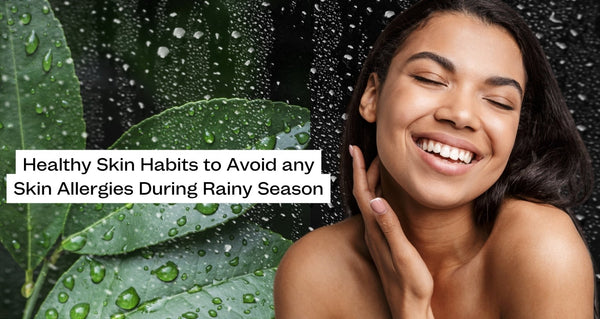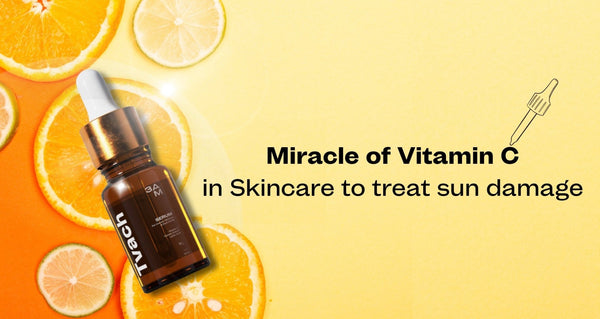Ingredients to Avoid: A Deep Dive into Harmful Substances in Conventional Beauty Products

In our pursuit of radiant skin and beauty, we often turn to a plethora of skincare and cosmetic products. However, not all that glitter is gold, and not every product is as kind to our skin as it claims to be. Many conventional beauty products contain a cocktail of chemicals that can be harmful in the long run. We overlook the chemicals in cosmetics, which could be how harmful chemicals enter your body. Or how could bad ingredients in skincare products end up causing more issues than solving any?
In this deep dive, we will explore 11 harmful chemicals commonly found in cosmetics, shedding light on their potential effects on your skin and overall health.
11 Harmful ingredients in skincare that are bad for your skin
- Parabens
Parabens are synthetic preservatives often used to extend the shelf life of beauty products. They are known to disrupt the endocrine system and have been linked to hormone imbalances, which can impact skin health.
- Sulphates
Sulphates, like Sodium Laureth Sulfate or also called Sodium Laureth Ether Sulfate (SLES), are commonly used as cleaning agents in cleansers and shampoos. While they help in the cleansing process, they can strip the skin of its natural oils, leaving it dry and prone to irritation. The risk of irritation increases with the length of time the products are in contact with your skin or eyes. Sulfates have the potential to clog pores and cause acne in those with sensitive skin.
- Phthalates
Phthalates are often hidden under the term 'fragrance.' They are linked to hormone disruption, allergic reactions, and can cause skin sensitivities.
- Artificial Colors
Artificial colors may make products look more appealing, but they often contain coal tar and other harmful compounds that can trigger allergies and skin reactions.
- Artificial Fragrance
Synthetic fragrances are known to contain a mix of undisclosed chemicals. They can be a common source of skin irritation and allergies.
- Triclosan
Triclosan used as an antimicrobial agent in many products, can disrupt the skin's natural microbiome and lead to antibiotic resistance.
- Talc
Talc, a common ingredient in powders and cosmetics, can be contaminated with asbestos, a known carcinogen. Prolonged use can pose health risks.
- Lead
Lead is sometimes found in lipsticks and can be ingested unknowingly. It is a neurotoxin and can harm the skin and overall health.
- Benzophenone
Benzophenone, often used in sunscreen, can trigger allergic reactions and is potentially linked to hormone disruption.
- Formaldehyde
Formaldehyde is a preservative used in cosmetics and can be an irritant, causing skin reactions and sensitivities.
- Alcohol
Alcohol, especially denatured alcohol, can be excessively drying and may compromise the skin's moisture barrier.
What are the good chemicals for the skin?
Out of all the best acids for skin, our personal favourites are the following two:
Hyaluronic Acid (HA):
- It hydrates and moisturizes the skin by attracting and retaining water.
- It helps plump and firm the skin, reducing the appearance of fine lines and wrinkles.
- Enhances the skin's natural barrier, preventing moisture loss.
- Promotes a smoother, more youthful complexion.
In which 3AM products you can find these goodies?
Everyday Facewash: A double cleanser that helps remove dirt, impurities, makeup, and SPF. The hyaluronic acid increases skin moisture and reduces the appearance of fine lines and wrinkles. Topical Use soothes redness & dermatitis.
Everyday Body lotion: A thoroughly soothing and moisturising lotion that hydrates your skin and targets body acne. This body lotion gives your skin 48-hour moisturization, improves skin elasticity, and firmness, and boosts collagen production.
Serum for Hydration and Collagen: Your ultimate boost of hydration filled with all things good. Absorbs 1000x its own weight in water so it keeps all the moisture locked into your skin, making it plump, smooth, and healthy. Helps with dryness, dullness, and dark spots.
Niacinamide (Vitamin B3):
- Regulates oil production, making it ideal for acne-prone skin.
- Reduces the appearance of enlarged pores and fine lines.
- Strengthens the skin's natural barrier, protecting against environmental damage.
- It soothes redness and inflammation, making it suitable for sensitive skin.
In which 3AM products you can find these goodies?
Speed Dial Face Mist: A face mist that is more than just mist. This is your toner, makeup setting spray, after-shave spray, and a pick-me-up when your skin is feeling dull. The niacinamide in this helps reduce acne, and inflammation while minimising pores. It also improves the skin texture, and fine lines and helps in the reduction of hyperpigmentation.
Baesic Moisturiser: Ever heard of a moisturiser that not only nourishes but doubles up as an under-eye cream? Well, now you have! Because this magic potion with niacinamide helps minimise pores, evens out skin tone, reduces inflammation, treats hyperpigmentation, and strengthens the skin barrier. It also targets under-eye dark circles.
Serum for Acne and Hyperpigmentation: This serum should be your go-to for acne-prone skin. The niacinamide refines uneven skin texture, brightens overall skin tone, combats acne by reducing sebum production, and reduces the appearance of existing acne scars.
Everyday Body lotion: If you are someone who frequently has body acne this body lotion is all you need. From hydration to targeting body acne this does it all. It reduces acne scars and inflammation, making it great for back acne and existing scars on your body. This ingredient is known to work best on Indian skin.
While it may be challenging to completely avoid all these chemicals in cosmetics, being aware of their potential risks allows you to make more informed choices. Opt for natural and organic products, read ingredient labels, and consider products with safer alternatives. Your skin and overall well-being will thank you for it.
Incorporating the above-mentioned beneficial chemicals into your skincare routine can address various skin concerns, from hydration and exfoliation to pigmentation and overall skin health. However, it's essential to use them in the right concentrations and to introduce them gradually to avoid any potential sensitivities. Consulting with a dermatologist or skin care professional can help you determine the best products and routines for your specific skin needs.
You can now buy these products and make a routine for yourself from our ongoing Festive Sale buying 4 products only @999. Happy festivities and here's to healthy skin.






